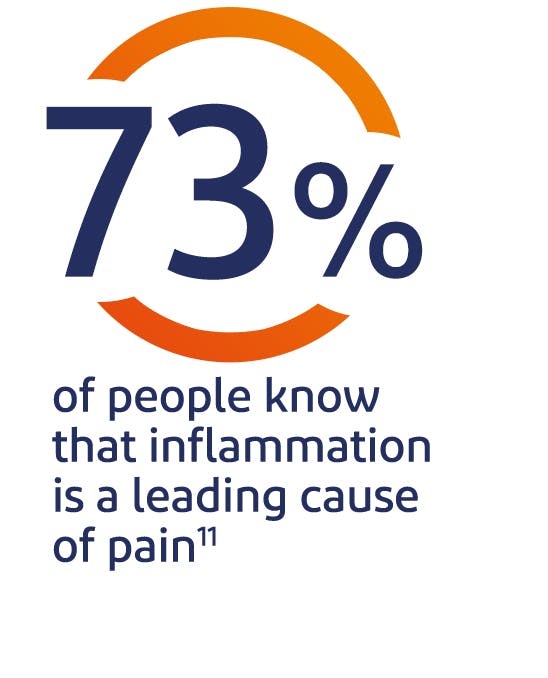Learn all about the processes that cause inflammation, why it happens and how it can make our bodies feel.
What is inflammation?
Inflammation is the body’s normal protective response to an injury.[72] It occurs when our white blood cells fight to protect us from infection, for example from bacteria or viruses. It can also occur when our bodies are injured, for example if you get a strain while playing sports it will often become painful, swollen and inflamed.[73]
How long does inflammation last?
Acute inflammation is an immune response that usually lasts for only a few days and is normally beneficial for healing, though it is often accompanied by unpleasant sensations such as itching or soreness.[60]
It happens when the immune system tries to protect organs from infection and injury.[60] Its purpose is to localise and eliminate damaged tissue so that the body can begin to heal.[60]

Did you know?
Inflammation occurs when blood vessels expand to let more blood get to the injured tissue. This is why the area gets red and hot.[27]
Symptoms of inflammation
There are five signs, or symptoms, that may indicate an acute inflammation: redness, heat, swelling, pain and finding it hard to move the affected area of your body normally.[60] Some inflammation may be minor, affecting only a small area and will heal on its own, but it can also be widespread, painful and require treatment.

Diagnosis and treatment
If your pain is severe or lasts for a long time you should consult your doctor. He or she may conduct an examination and possibly order a blood test or imaging tests, such as an X-ray, MRI or CT scan to find out the cause of the inflammation. A doctor may also recommend treatment, such as taking nonsteroidal anti-inflammatory drugs (NSAIDs), which are used for anti-inflammatory purposes and pain relief.














